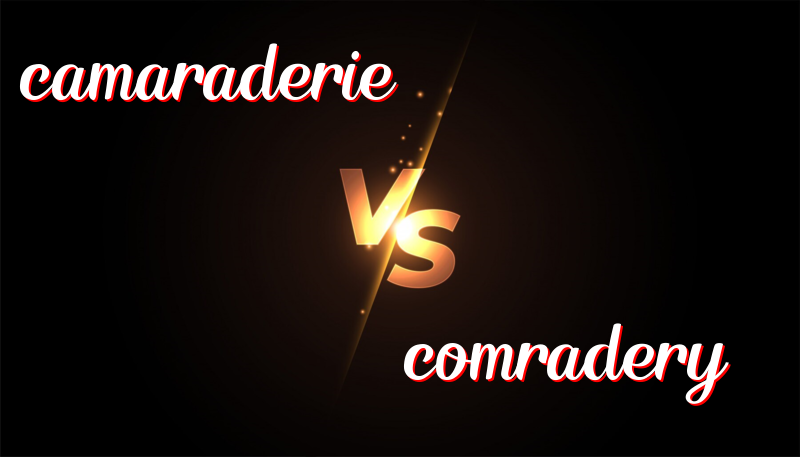Understanding the Distinction Between Camaraderie and Comradery
The Difference Between “Camaraderie” and “Comradery”
In English, some words can be tricky because they sound or look similar. Two such words are “camaraderie” and “comradery”. Let’s learn about these words, where they come from, how we use them, and a simple trick to tell them apart.
History of the Words
The word “camaraderie” comes from the French word “camarade,” which means “comrade” or “friend.” It has been used in English for a long time to describe a feeling of friendship and trust among people.
“Comradery” is a simpler, less common spelling of the same idea. It comes from the word “comrade,” which means a friend, especially someone who shares activities or goals with you. “Comradery” is mostly used in American English.
How to Use the Words
Both words talk about friendship and good feelings between people, especially in groups. They can often be used the same way, but “camaraderie” is used more often.
Examples of “Camaraderie”
- 1. The camaraderie among the team members made the project fun and successful.
- 2. There was a feeling of camaraderie at the summer camp.
- 3. The soldiers relied on their camaraderie during difficult times.
- 4. The group activities helped build camaraderie among the students.
- 5. The camaraderie at the office made it a great place to work.
Examples of “Comradery”
- 1. The comradery of the club members was evident in every meeting.
- 2. After the hike, a strong sense of comradery developed among the hikers.
- 3. The shared challenges created a bond of comradery between the players.
- 4. The comradery in the band was clear from their great performance.
- 5. The group trip was planned to promote comradery among employees.
Trick to Remember the Difference
A simple way to remember these words is to think of “camaraderie” as the more formal and traditional word, while “comradery” is a simpler, less common version. You can use “camaraderie” in more formal writing and “comradery” in casual American English speaking.
Summary
To sum up, both “camaraderie” and “comradery” mean the feeling of friendship among people. “Camaraderie” is more common and slightly more formal, while “comradery” is a simpler variant. Use “camaraderie” when in doubt since it is recognized everywhere.

Leave a Reply
You must be logged in to post a comment.